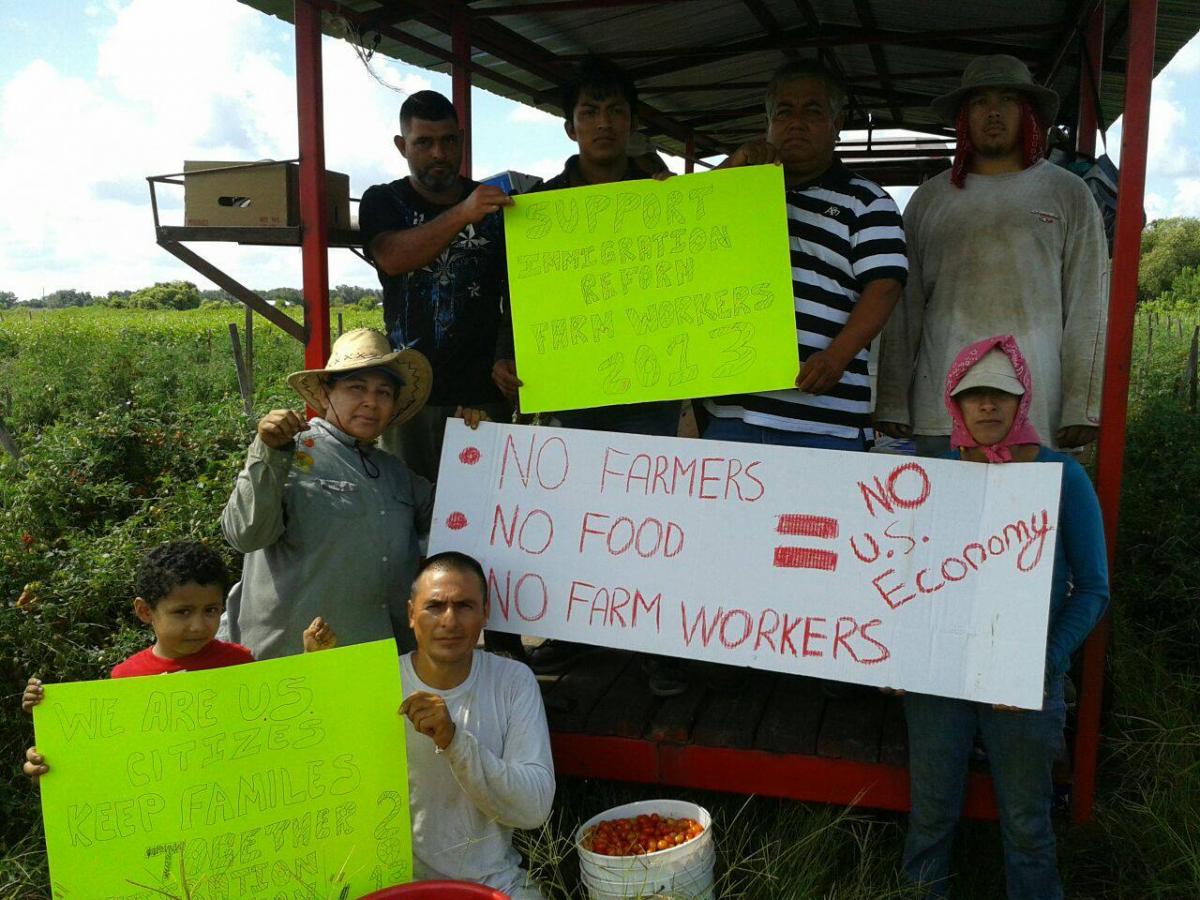Farmworkers Are Using Social Media to Help Influence Policy

Websites like Facebook and Twitter help farmworkers not only to speak to people who influence policy but also the public who might not be aware of conditions in the fields. From June 25th to June 28th farmworkers posted pictures, on Facebook and Twitter, of themselves working in the fields or carrying homemade signs with words in support of farmworkers and immigration reform. With the link, #Fieldfotos, they sent these pictures to Senators asking them to support the bill.
Guest blog by Ropadazo Maweni, Farmworker Justice Health Intern
Websites like Facebook and Twitter help farmworkers not only to speak to people who influence policy but also the public who might not be aware of conditions in the fields. From June 25th to June 28th farmworkers posted pictures, on Facebook and Twitter, of themselves working in the fields or carrying homemade signs with words in support of farmworkers and immigration reform. With the link, #Fieldfotos, they sent these pictures to Senators asking them to support the bill. On June 27th, the Senate passed the immigration reform bill with a vote of 68-32. The bill will improve the lives of farmworkers and let them work to become legal residents if they can prove that they have been doing framwork in the United States and plan to continue doing it for an additional 3 to 5 years. Comprehensive immigration reform would improve the lives of many farmworkers and their families.
Another social media site where farmworkers are posting about themselves is a Tumblr blog, “We are the American Way”, which uses the story of the comic book character Superman, from the 2013 movie Man of Steel to share the stories of United States immigrants, including those who work in agriculture. In the movie, Superman, an “alien” born on a different planet, arrives in Kansas, USA as a baby. Through hard work he becomes an important part of his community and works for what he calls “truth, justice and the American way”. The blog has pictures of United States immigrants holding up signs with explanations of how their own stories are the same as Superman’s and how they are also “the American way”.
“Fotos from the Field” and “We are the American Way” both show how farmworkers can use websites like Facebook and Twitter to tell their stories and talk about their rights. Social media is direct: "Fotos from the Fields” shows how a tweet can be sent to the official account of a senator or representative, which lets the person who sent it speak directly to that senator or representative. Social media is also personal: “Fotos from the Fields” highlights the faces of the farmworkers and shows the long and hard hours they work. Policy debates have real consequences on people’s lives and by using social media to show the people most impacted by decisions, farmworkers are making sure their voices are heard.
Websites:
“Fotos from the Field”
"We are the American Way”

From Framworker Justice's Facebook Page
Keep Farmworker Families Together! Farmworkers standing united in support of S.744 #FieldFotos @UFW Foundation

